1,100-year-old sealed amphora discovered off coast of Antalya excites archaeologists
 A view of the 1,100 year old, closed-mouth amphora (a jug used in ancient times) that was removed from a shipwreck during underwater excavations carried out with the help of robots off the coast of Kas, Antalya, Türkiye, April 22, 2025. (AA Photo)
A view of the 1,100 year old, closed-mouth amphora (a jug used in ancient times) that was removed from a shipwreck during underwater excavations carried out with the help of robots off the coast of Kas, Antalya, Türkiye, April 22, 2025. (AA Photo)
An extraordinary discovery has been made in the crystal-clear waters off the Kas district in Antalya, Türkiye. Archaeologists conducting underwater excavations with the help of robotic technology have recovered a 1,100-year-old sealed amphora, igniting excitement in the world of archaeology.
Led by Associate Professor Hakan Oniz, Chair of the Department of Conservation and Restoration of Cultural Heritage at Akdeniz University’s Faculty of Fine Arts, a 20-person dive team has been working meticulously on this groundbreaking project.
The excavation is carried out under the “Heritage for the Future Project” by the Ministry of Culture and Tourism, on behalf of the Antalya Museum.
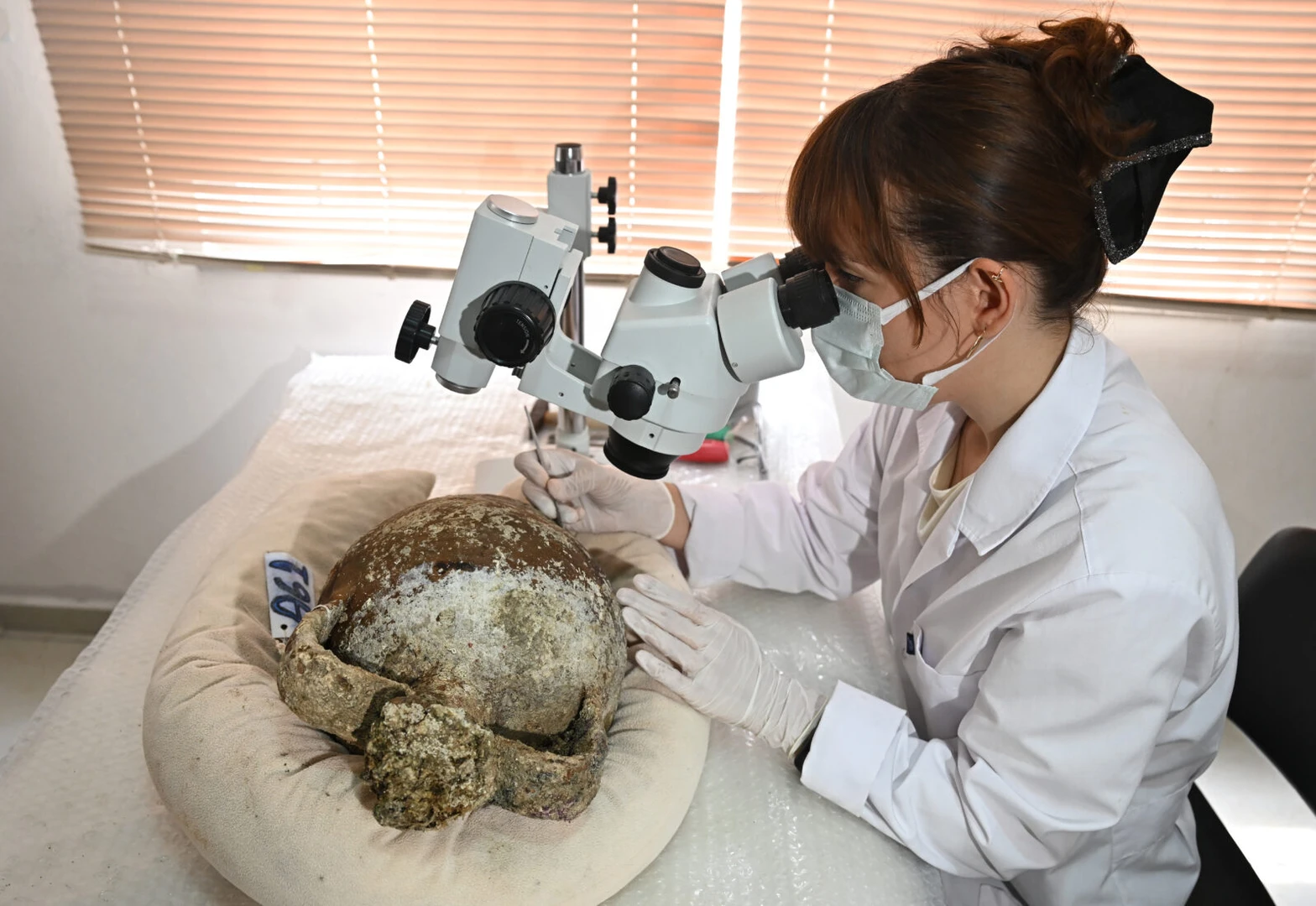
Excavating the depths with robotic precision
Focusing their efforts near Besmi Island off the coast of Kas, the team utilized advanced underwater robots to conduct excavations several meters below the surface. At depths of approximately 45-50 meters, the divers successfully retrieved a sealed amphora from the wreckage of an ancient ship, a moment described as thrilling by the team.
Rather than being brought directly ashore, the amphora underwent an initial conservation process before being transported to the Akdeniz University Underwater Archaeology Laboratory in Kemer. Using microscopes and specialized magnifying tools, experts carefully examined the artifact. Then, specialists from the Antalya Regional Conservation Council and laboratory restorers meticulously opened the sealed amphora for an hour, employing chisels, hammers, and delicate instruments.
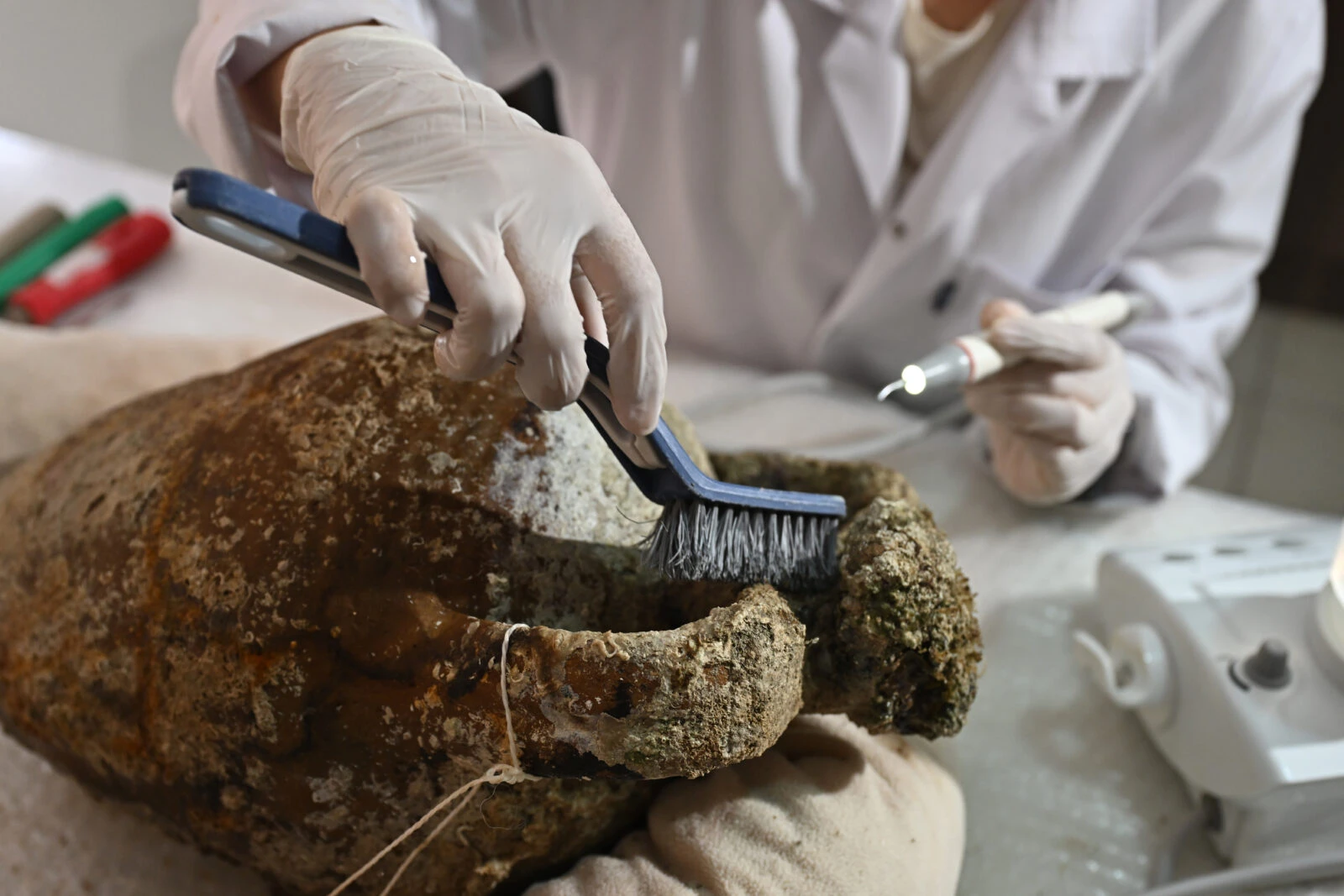
A glimpse into the past, locked away for over a millennium
As the ancient seal was broken, archaeologists eagerly examined the texture, content, and even scent of the material inside the amphora to determine its nature. Samples have been collected, and detailed scientific analyses are now underway to identify the contents with certainty.
The opening of the amphora and the preliminary examination of its contents were exclusively documented by Anadolu Agency.
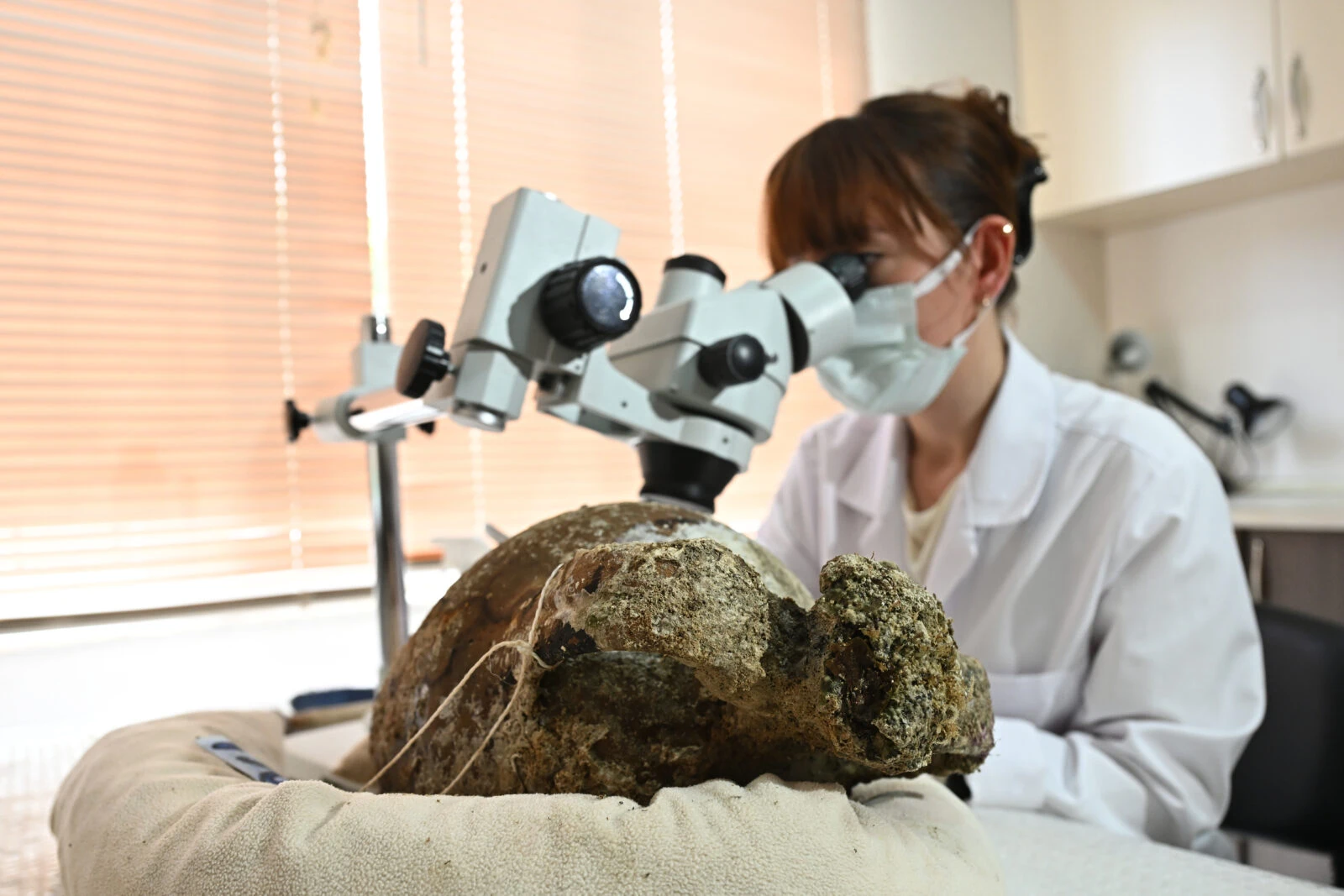
Ancient trade routes revealed
Speaking to Anadolu Agency, excavation leader Associate Professor Hakan Oniz shared that the merchant vessel likely originated from the Gaza coast in Palestine and sank during a violent storm in the Mediterranean around 1100 years ago.
At that time, Gaza was a major exporter of olive oil, and it is believed that wine was shipped from the region of Sarkoy-Gazikoy in Tekirdag as well.
“This was a trading ship that visited multiple ports during the ninth and 10th centuries, a period dominated by Abbasid rule. Although amphoras thought to have carried wine were found onboard, it is unlikely that the local Palestinian population consumed wine at that time. Instead, it may have been intended as gifts for Christian pilgrims or travelers visiting Jerusalem,” Oniz elaborated.
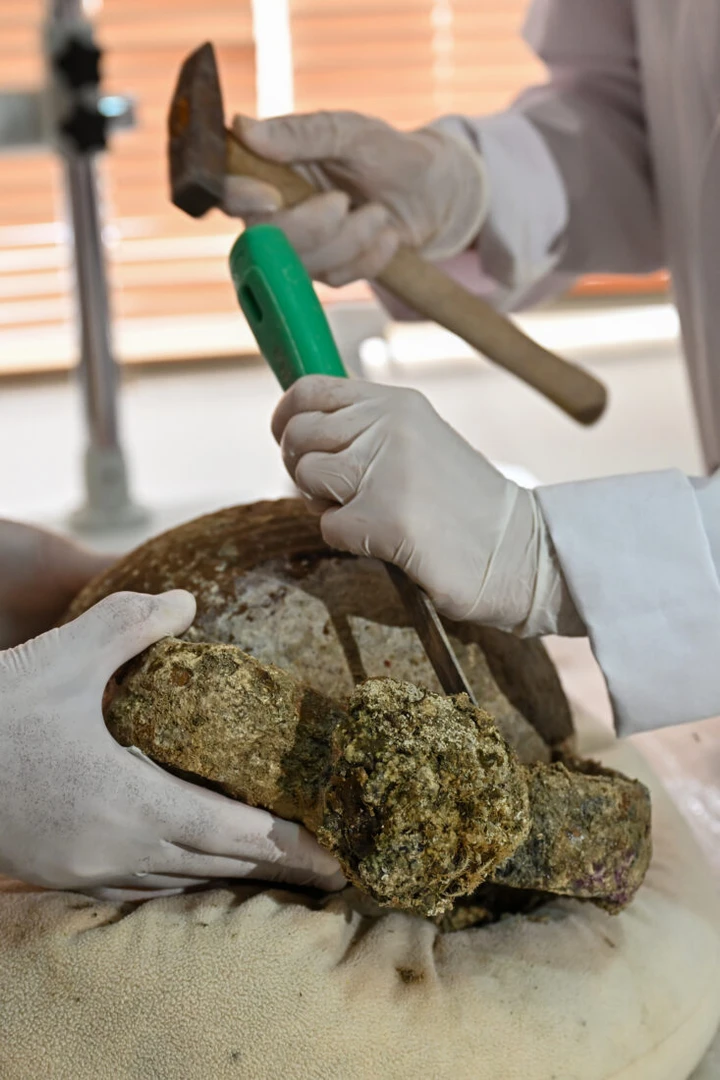
‘A unique find that defies time’
Oniz emphasized the rarity of the find, stating, “It is incredibly rare to discover an amphora whose seal remained intact for more than a millennium. It could contain olive pits, olive oil, wine, or even fish sauce—but it might also be something entirely unexpected. Opening the amphora was thrilling, but awaiting the final analysis is even more exciting.”
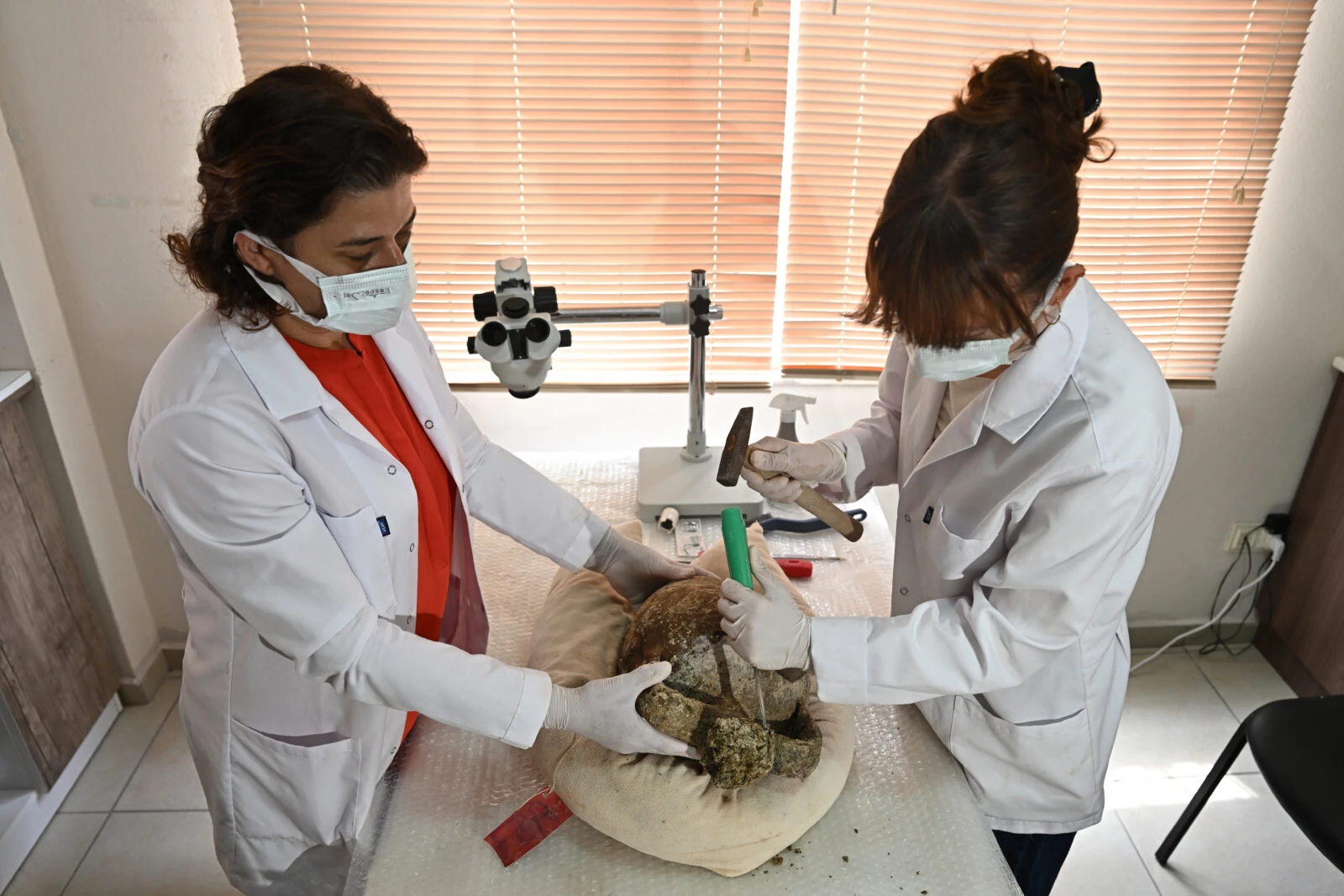
Long road ahead for scientific analysis
Professor Meltem Asilturk Ersoy from Akdeniz University’s Department of Materials Science and Engineering noted that this was her first time studying the preserved contents of a sealed amphora.
Describing the interior contents as “muddy samples,” Ersoy added, “We aim to understand what has happened inside over 1,100 years of exposure to underwater pressure and temperature variations.”
“A single test is not sufficient. We need multiple analyses to corroborate our findings, so this process will be lengthy. By combining the analysis results with historical knowledge from the era, we aim to offer significant insights to the world of science and archaeology,” Ersoy said.
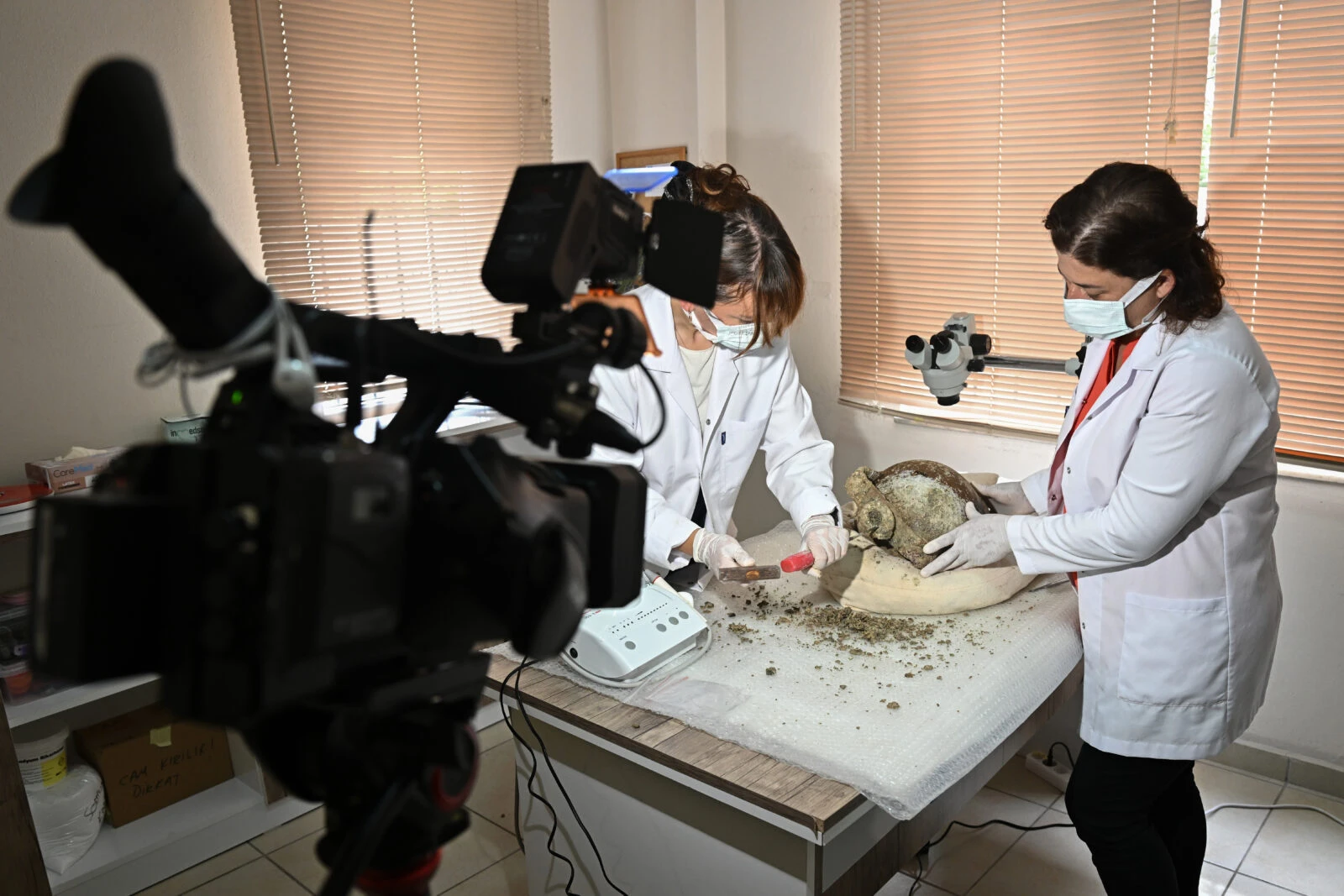
Meanwhile, Rabia Nur Akyuz, the restorer-conservator who handled the desalination and opening of the amphora, highlighted the delicate nature of the process. “We had to ensure that the artifact remained wet at all times to prevent the external deposits from drying out,” she explained.



